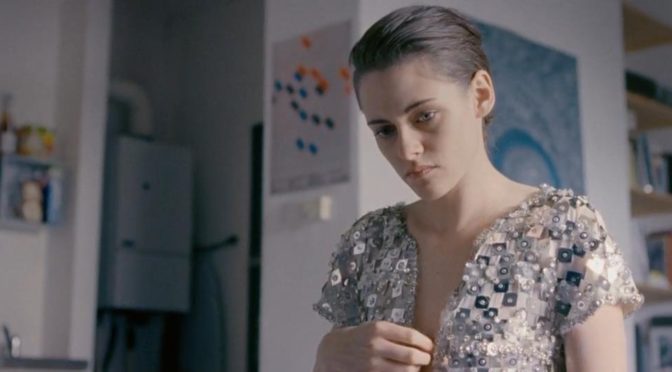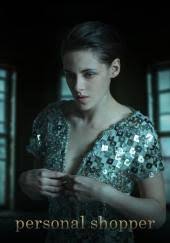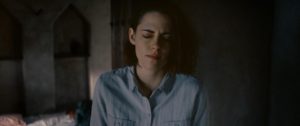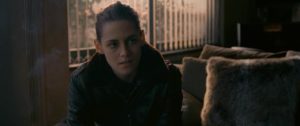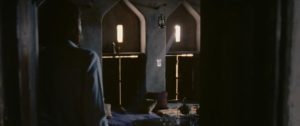I’m not what you would call a particularly morbid person. Singin’ In the Rain sits high atop my list of the best films ever made, I still become unabashedly jovial during the Christmas season, and I have an unquenchable thirst for the gangly, lyrical humanism of Richard Linklater films. Still, like most people, I have moments where I engage myself in a few too many sips of the world’s darkness. This is always predictably followed by anywhere between a day and a week where I dearly wish I hadn’t done that. I watch too much of the news or read about one tragedy too many, and my spirit essentially becomes inebriated from taking in too much sadness all at once. For lack of a more accurate word, I become haunted. I have come to accept these periodic bouts of melancholy as the natural side effect of staying engaged with and reasonably informed about the world I live in. Falling under sorrow’s hypnotic spell from time to time is just a part of being alive. Feeling unsettled is the inevitable hangover that comes from having too much to think. One of the main problems with that heavy feeling though is that it has a weird way of making the tedium of everyday life, which I might ordinarily breeze through with a chipper attitude and an obliging smile, feel aggravatingly arbitrary and unwelcome. Personal Shopper is the second, consecutive ghost story on my year-end list, and it’s one of the better evocations of what it’s like to feel sad, spooked out, and emotionally unnerved; to move through the tangible world while simultaneously occupying a disconnected realm of one’s own thoughts, terrors, and emotions. I have to believe we all feel a little spectral from time to time, even if we do not believe in ghosts. Personal Shopper is the kind of ghost story where being haunted is both a supernatural phenomenon and an all too human state of mind. And by way of giving you a nice, easy entry point into the year’s most daringly austere and potentially cryptic films, allow me to say that Personal Shopper should have some degree of relatability to anyone who has ever found themselves trudging through the long, uneasy doldrums of a grief-stricken, haunted, or just generally moody time in their life.
With that said, I would not want to misrepresent Personal Shopper as being particularly easy to digest. It would create some detrimental expectations for the viewer if I didn’t say upfront that it is one the year’s most mysterious, chilly and challengingly opaque works of cinema. Moreover, it would do a disservice to the film itself. Olivier Assayas’ (Summer Hours, The Clouds of Sils Maria) strange, preposterously masterful hybrid of spare character study, supernatural mood piece, and psychothriller is a quietly tense, defiantly unsettling film. The film itself is a bit like a stubborn, confrontational ghost. It is a riveting experience in its own strange, moody way but it is the furthest thing from being ingratiating. Personal Shopper is the story of Maureen, a young American woman living in Paris. She is outstandingly played by Kristen Stewart, the first American actor in history to win the Cesar award (France’s answer to the Oscar), and now in full stride as the rare movie star who knows how to anchor a subdued, cerebral art film. Maureen is the titular personal shopper and the film’s protagonist. Her work entails going to high-end fashion galleries and picking out clothes for a vain fashion icon. She has absolutely no enthusiasm for her laughably frivolous day job, but she has her own reason for keeping it. Maureen is a medium. Her twin brother, Lewis, who was also a medium, passed away from a heart attack nine months earlier. As a medium, Lewis was more fervently committed than his sister. He believed wholeheartedly in the existence of a spirit realm, while Maureen always remained skeptical. When Lewis was alive, he and Maureen promised each other that whoever outlived the other would stay around the city where they died long enough to see if the deceased’s spirit would make some kind of spiritual contact. Despite her doubts, Maureen tells her boss’ boyfriend that she owes her dear brother’s soul a chance to prove his own deeply held belief. She spends many nights staying in the empty, palatial house that Lewis once shared with his French girlfriend, wandering around its darkened rooms and hallways. She has recently sensed a spirit in the house, but she is fearful that this ghost might not be her brother. The cause of much of Maureen’s strife and tension is that, in choosing to leave her mind and heart open for her brother to communicate with her, she is giving all her mental energy over to death and the unknown. Personal Shopper is the story of an overwhelmed young woman trying to come to terms with the grief she feels for her lost twin, wrestle her fears that she might die from the same condition, and maintain some semblance of emotional stability, while spending almost every waking moment thinking about ghosts. And of course, those waking moments not taken up with trying to keep her ear cocked toward the netherworld are taken up by the surreal banality of buying boots, dresses and belts for a flighty, temperamental celebrity.
One of the key ideas in Personal Shopper is that feeling one has when they remembers that they are alone on a confusing, chaotic planet, orbiting a single star in a universe filled with countless other stars, unsure of where they fit into it all, and that they have to go get up and edit nondisclosure agreements. Or fix Honda Civics. Or buy overpriced leather pants for someone who models overpriced leather pants for a living. And that’s just the normal kind of workaday ennui we’re talking about. It becomes an entirely different matter when we factor in the juggernauts of grief, depression, and isolation. Olivier Assayas could have had Maureen work in any modern profession, but part of the reason that a personal shopper works so well for this story is that it is such an extraneous, unmistakably modern line of work. The tension Maureen feels is not just that she must spend her days being distracted from the cosmically, weight matters that call out to her, but that she is being called away from that by something so staggeringly unimportant. Paris is a tomb to Maureen. It is the place where she lost the person she clearly loved most in this world. The only reason she is hanging around this dismal town, by her own admission is that she wants to make contact. The wry commentary of the film seems to be that, if Maureen is trying to call out to the inscrutable, ageless heavens, what profession could be less timeless, less universal, and less consequential in the grand scheme than specializing in knowing what garments one famous mortal likes to wear? Maureen laments that tending to her rich boss’ errands is keeping her from matters of real importance and Kristen Stewart subtly conveys how much more aggravating a ridiculous job must seem when you are not only wracked with grief but have also literally glimpsed the spiritual fabric of existence.
The counterpoint to all this is that the obligatory, frivolous, and trite minutiae of life is also an undeniable component of existence. And more importantly, those silly things are part of what it means to be alive. While Maureen is certainly right to feel that designer harnesses and plunging, silver-sequined gowns look superficial next to the grand questions of what happens after we die, the ability to covet shiny baubles and think about fashion is something we only have while we are breathing. Because, in her heart of hearts, Maureen is not just put off by the superficial details of her dayjob. In her bereaved, haunted state, she is really having trouble relating to the living world in general. It is not just the glossy trappings of privileged society that disinterest her, but the entire humdrum experience of being alive. This is the lure of sadness and death-obsession. It makes it harder to willingly go back to living world with all its ridiculous extravagances and absurd rituals. But those silly cotton candy wisps of fashion and pop music and blind dates and dumb day jobs are what life is. Monotonous and superficial as they are, to be alive is to give ourselves over to those things and fool ourselves into thinking they mean much more than they do. Much as we can empathize with Maureen’s gripes about the emptiness of her daily grind, it is also very clear that her investigation into the mysteries of death has led her to cross over into that realm; to carry it in her very bones, even as she seems to occupy the living world. When Lewis’ girlfriend bashfully reveals that she has begun dating again, she explains to Maureen, “I think now I want life.” Personal Shopper is about a woman who cannot convince herself to really want life again. It presents the idea that there are pockets of death floating around within life, and that there is a difference between breathing and actually feeling alive. It is not to say that Maureen is suicidal, that she actually wants death. But in the wake of her twin’s untimely passing, she is perhaps more aware than ever that death is all around us. What makes Personal Shopper such a well-observed portrait of dejection is how it paints depression, loneliness, and bereavement as a kind of underwater limbo. The nagging duties and repetitive interactions of normal life become nuisances repeatedly trying to permeate grief’s bubble. Personal Shopper plays as both an actual ghost story and as a symbolic one, where the spectres of loss and melancholy become phantasms unto themselves. What lingers about the film is how much moody tone it wrings just from watching Maureen process her raw, unsettled mental state. Assayas, whose lovely Summer Hours made the fate of a country house in a mother’s will feel impossibly soulful, is a director with a style that is both artistically rigorous and quite unfussy. He does not need to show us too many shrieking phantoms or levitating objects to make Maureen’s world feel possessed by a spirit of foreboding. He conjures up a thundercloud of disquieting emotion without having to make very much of it visible, and the occasional direct encounters Maureen has with supernatural phenomena feel all the more startling for how sparingly they are shown. The true accomplishment is how spaces that might feel warm or innocuous in a different context feel frigid; the lush, lamplit streets of Paris or the bright-white, modernistic showrooms of haute couture shops. Assayas creates a masterclass in slow-burning tension without really ever relying on jump scares or frightful imagery. Instead, he achieves this beautifully unsettling sense of tone through a tight focus on Stewart’s observant, anxious performance and an elegant sense of composition that helps keep us trapped in the damp mausoleum of her tormented headspace.
And beyond just showing off that Assayas can conjure up a whole lot of mood with barely a flick of his wrist, I do find a greater thematic purpose in his relatively minimalist approach to creating an atmosphere of disquiet. Because Personal Shopper is about the kind of internal shiver that doesn’t just dissipate as soon as we turn all the lights on and fire up the space heater. It is, in many ways, the antithesis of your typical gothic horror film. Apart from the nights she spends in her late brother’s dark house, we spend most of our time watching Maureen in broad daylight, or at least in bright, populated spaces. She rides her scooter through crowded French streets and walks through bright, funky fashion lobbies and rides packed commuter trains. Maureen is frequently not by herself in the dark, but that fact brings no comfort. None of it makes the fearful pallor drop away from her face, and this is what makes Personal Shopper its own unique spin on the ghost story. We so often think of ghosts as something one hears out in the woods or in the creaking floorboards of an old, abandoned building, but Olivier Assayas’ aim is to tell a haunting story under the glaring, neon daylight of our bright, technologically-enhanced 21st century world. The film’s best and most nerve-wracking scene finds Maureen about to board a high-speed train to London with the latest smart phone in her hand. On her way to the train, she receives a sinister, mysterious text message from an unknown number. Whoever this is, they claim to know her and to be watching her at that moment. The phantom text messenger asks her prying questions, prods her about her deepest fears and desires, and angrily chastises her when she waits too long to respond. We see Maureen’s expression go ashen as something as seemingly banal as a text exchange rattles her sense of safety. Maureen, deeply afraid but also perversely curious, gets pulled into an eerie, sinister dance with her own insecurities. This could be a ghost or maybe just a human being who got her number from someone she works with. Is it a malicious phantasm or just some immature prankster amusing himself at her expense? The truth of the scene is that it doesn’t necessarily matter who this particular messenger is. What does matter is the suggestion that a more fast-paced, glitzy and modern world cannot keep our phantoms at bay. If we can believe in something as fantastic as a spirit realm, it really isn’t such a stretch to believe that those spirits could also learn to use an iPhone. The suggestion is that the ghostly presences that have haunted human beings since time immemorial, be they real or psychological, are not going to stop just because our world has grown more technologically advanced. As far as we advance, we will never invent a gadget to stop the chill that runs down our back when we sense feel ill at ease. These haunted feelings, and the tantalizing, unanswerable questions that come with them, are timeless. The glow of our screens and neon billboards are as powerless to repel our dread as the candles and torches of centuries past.
At one point, Maureen takes a trip to the sun-bleached mountains of Morocco to visit her boyfriend. She can finally stand no more of the bone-chilling cold she feels in her soul, and she hopes all that brilliant, blinding sunlight will scatter away some of the deathly shadows hanging about her. It doesn’t work. But, as the film draws to a close, I believe we are finally seeing a version of Maureen that wants to let go of the spectres of grief and death. Like her brother’s girlfriend, I think Maureen is trying as hard as she can to want life again. Maybe the lesson here is that we don’t always have complete control when it comes to feeling blue and bewitched. Spirits, whether real or just in our heads, seem to have a mind of their own, and sometimes we have to wait for them to leave us in their own good time. I began this week and the early scribblings of this very review in a pretty powerful gloomy spell of my own, though I feel that shadow lifting as I write these last words. Part of what makes Personal Shopper such a beautiful, original piece of work is that I do not believe it is trying to be too didactic about sadness, despondency, grief, or any other ghostly emotion that overtakes us from time to time. It seems content to observe that life is full of light and shadow and sometimes the latter throws its weight around and holds sway over the former. Life is so often a tug-of-war between the warm glow of silly little pleasures and the anxiety of matters that are heavier and less benign. Laughter and sorrow. Top 40 radio and civil wars. First dates and unspeakable tragedies. Finding a new pair of shoes and losing loved ones. It is enough to say that life is mysterious and beautiful and otherworldly powerful in its contrasts. And that is true before one dips so much as a toe into matters of ghosts and spiritual netherworlds. Our emotions and our imaginations have a mystical, elemental power all their own. It is stunning to think how much joy, heartbreak, curiosity, and terror course through us. From time to time, everyone’s head can turn into a haunted house. And so I watch the lights of my own house flicker back on, as they always do. And the heater starts working again and I can breathe easy until the next time the wind starts blowing all the shutters open. What else can be said? I have no interest in putting a period or exclamation mark on this misty question mark of a film. This ethereal, moaning banshee of a movie is about the dark spaces within us that will always feel unsettled, uncivilized, and unresolved. I can stop reviewing the film, but grappling with the feelings it evokes will always be unfinished business.
